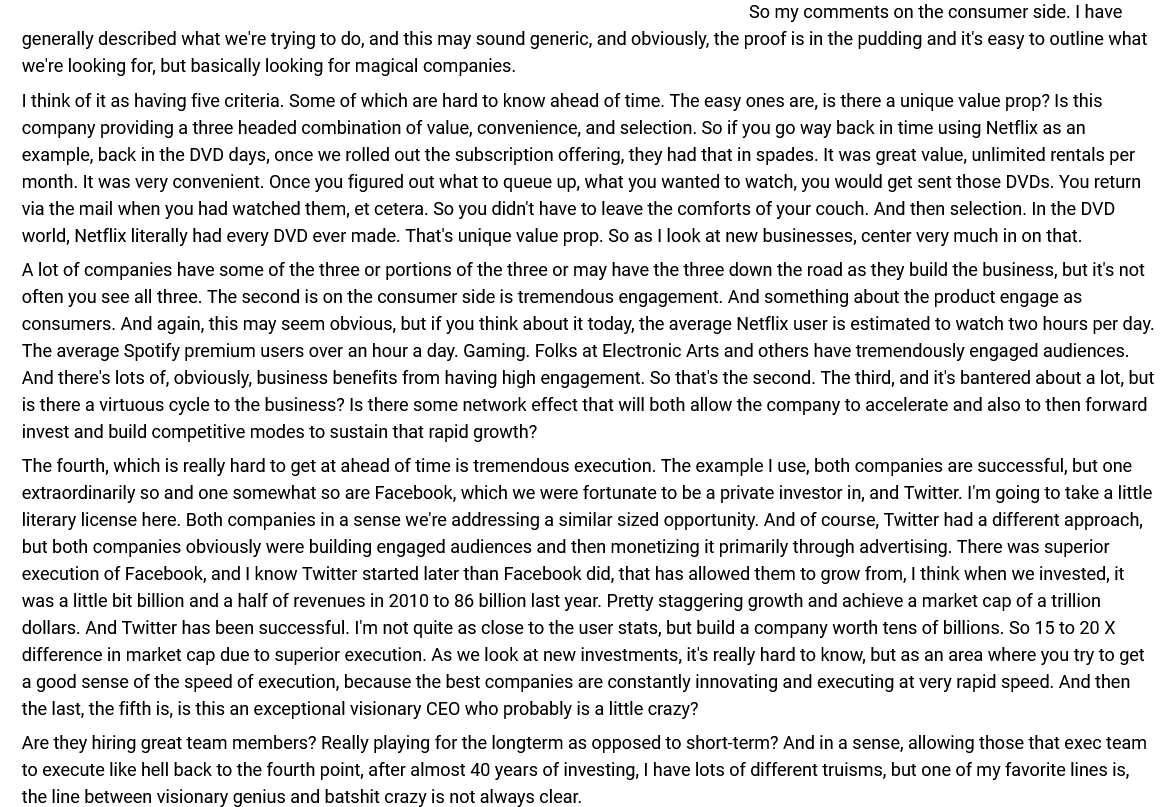The interview with CNBC of @chamath is a much watch because there is so much insight hidden underneath.
More from Carlos E. Perez
Nice to discover Judea Pearl ask a fundamental question. What's an 'inductive bias'?
I crucial step on the road towards AGI is a richer vocabulary for reasoning about inductive biases.
explores the apparent impedance mismatch between inductive biases and causal reasoning. But isn't the logical thinking required for good causal reasoning also not an inductive bias?
An inductive bias is what C.S. Peirce would call a habit. It is a habit of reasoning. Logical thinking is like a Platonic solid of the many kinds of heuristics that are discovered.
The kind of black and white logic that is found in digital computers is critical to the emergence of today's information economy. This of course is not the same logic that drives the general intelligence that lives in the same economy.
Help! What precisely is "inductive bias"? Some ML researchers are in the opinion that the machine learning category of \u2018inductive biases\u2019 can allow us to build a causal understanding of the world. My Ladder of Causation says: "This is mathematically impossible". Who is right? 1/
— Judea Pearl (@yudapearl) February 14, 2021
I crucial step on the road towards AGI is a richer vocabulary for reasoning about inductive biases.
explores the apparent impedance mismatch between inductive biases and causal reasoning. But isn't the logical thinking required for good causal reasoning also not an inductive bias?
An inductive bias is what C.S. Peirce would call a habit. It is a habit of reasoning. Logical thinking is like a Platonic solid of the many kinds of heuristics that are discovered.
The kind of black and white logic that is found in digital computers is critical to the emergence of today's information economy. This of course is not the same logic that drives the general intelligence that lives in the same economy.
More from Business
There are so many #HotTakes on the future of news and tech and digital this week. Now nearly half a year distant (and what a year - 2020, ugh!) from CEO and board @mcclatchy, I'd like to add a few thoughts: 1/
As @jbenton said in @NiemanReports : @mcclatchy transformation shows it STILL is possible NOW 'to be operationally profitable while still doing good journalism.' Not easy; Covid made it harder. But POSSIBLE and DONE by the great team in 2020 @mcclatchy. 2/
As @jbenton wrote: the #DIGITALTRANSFORMATION @mcclatchy 'shows a company that has managed the digital transition better than most; at last public count, it was making nearly half its ad revenue in digital and digital subscriptions were up 45% year-over-year.' Such focus 3/
On the future is digital is the SOLE way the still-powerful brands of local news and information will be able to have a business in the inevitable 'printless' future (Not today, not tomorrow, but printless someday) 4/
And the crisis in local news is relentless, unabating and by most measures WORSENING. More titles going dark; huge losses to our communities, because solely a blend of new digital startups AND existing footprint offer the scale 5/
I'm glad to see @jbenton's excellent analysis shows what a good job McClatchy CEO @cforman has actually been doing. The fault for bankruptcy goes *way* back to prior regimes piling up unmanageable debt. He rescued the company. 1/https://t.co/EEbxWXBNvW
— Jeff Jarvis (@jeffjarvis) July 16, 2020
As @jbenton said in @NiemanReports : @mcclatchy transformation shows it STILL is possible NOW 'to be operationally profitable while still doing good journalism.' Not easy; Covid made it harder. But POSSIBLE and DONE by the great team in 2020 @mcclatchy. 2/
As @jbenton wrote: the #DIGITALTRANSFORMATION @mcclatchy 'shows a company that has managed the digital transition better than most; at last public count, it was making nearly half its ad revenue in digital and digital subscriptions were up 45% year-over-year.' Such focus 3/
On the future is digital is the SOLE way the still-powerful brands of local news and information will be able to have a business in the inevitable 'printless' future (Not today, not tomorrow, but printless someday) 4/
And the crisis in local news is relentless, unabating and by most measures WORSENING. More titles going dark; huge losses to our communities, because solely a blend of new digital startups AND existing footprint offer the scale 5/






















